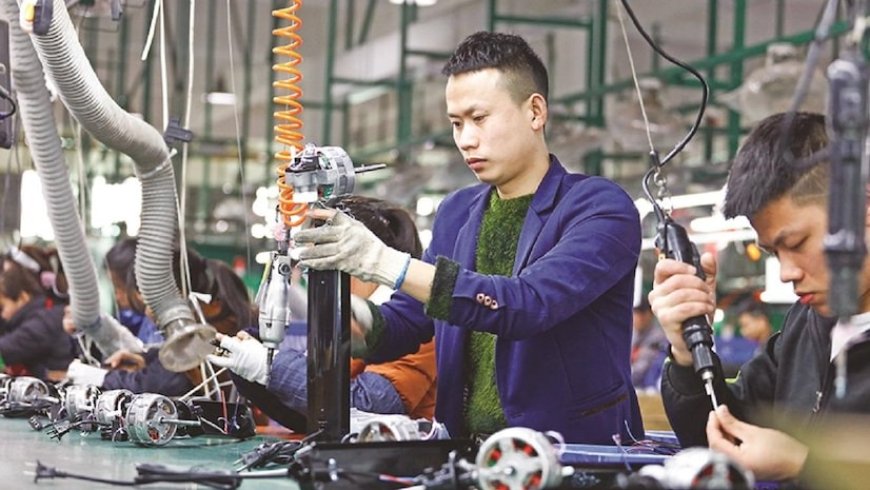Revitalizing Family Businesses: Can the Next Generation Save China's Manufacturing Legacy?
Discover how the younger generation in China is taking on the challenge of reviving family businesses in the manufacturing sector. Explore their innovative strategies and efforts to adapt to changing times and save China's manufacturing legacy.

China's manufacturing industry, once renowned as the world's factory, is experiencing a significant paradigm shift. In response to challenges such as a shrinking workforce, an aging population, and fierce competition from emerging markets, a new generation of entrepreneurs has emerged in China. These young individuals, known as the "chang er dai" or "the second factory generation," are tasked with rejuvenating their family businesses and driving innovation. This article delves into their journey and explores the strategies they employ to modernize and transform their enterprises, ensuring long-term sustainability.
The Changing Landscape:
China's traditional labor-intensive manufacturing model, which contributed to its status as a leading global exporter, is becoming less viable. To remain competitive, factories must adapt to the changing dynamics of the market and embrace technological advancements and efficient practices.
Introducing the "chang er dai":
The "chang er dai" generation, often criticized for their perceived privileges, is at the forefront of this transformative process. With an estimated 45,000 to 100,000 individuals from this cohort assuming control of up to one-third of private Chinese manufacturing firms, their mission is to save their family businesses from impending decline and usher them into the modern era of manufacturing.
Success Stories:
Several success stories among the "chang er dai" offer valuable insights into their strategies and achievements. Steven Du, who took over his parents' temperature control systems factory in Shanghai, recognized the importance of creating a conducive work environment. By implementing heating during the winter months and prioritizing employee satisfaction, Du witnessed a significant improvement in productivity, resulting in a 50% increase in factory efficiency.
Another exemplar is Zhang Zeqing, who joined his parents in managing an egg-products factory in Ruichang. Through digitalization and the adoption of contemporary practices, Zhang streamlined processes, introduced real-time data monitoring, and optimized production. These initiatives led to a notable 35% annual increase in sales, demonstrating the potential for growth through technological integration.
Challenges and Triumphs:
While the "chang er dai" face numerous challenges, including rising labor costs, labor shortages, and disagreements with family members, their determination and innovative thinking enable them to overcome these obstacles. Their exposure to foreign practices, technological know-how, and intimate knowledge of their family businesses empower them to navigate the evolving landscape successfully.
Charting the Path Forward:
Although technological upgrades play a vital role in ensuring competitiveness, the "chang er dai" understand that sustained success requires more than just efficiency improvements. Product innovation, market diversification, and strategic adaptation to changing consumer demands are essential for long-term viability. By leveraging their unique advantages and continuously evolving their enterprises, these young entrepreneurs contribute to the preservation of China's prominence in global manufacturing.
Conclusion:
The emergence of the "chang er dai" symbolizes a new era of innovation and transformation within the Chinese manufacturing sector. Through their resilience, strategic vision, and dedication, these young entrepreneurs are rewriting the narrative of traditional family businesses. By embracing technological advancements, implementing efficient practices, and staying attuned to market trends, they are securing the future of their enterprises while reinforcing China's position as a leading force in 21st-century global manufacturing.
Also Read: China Faces Mounting Pressure to Boost Economy Amidst Rate Cut Skepticism

































































